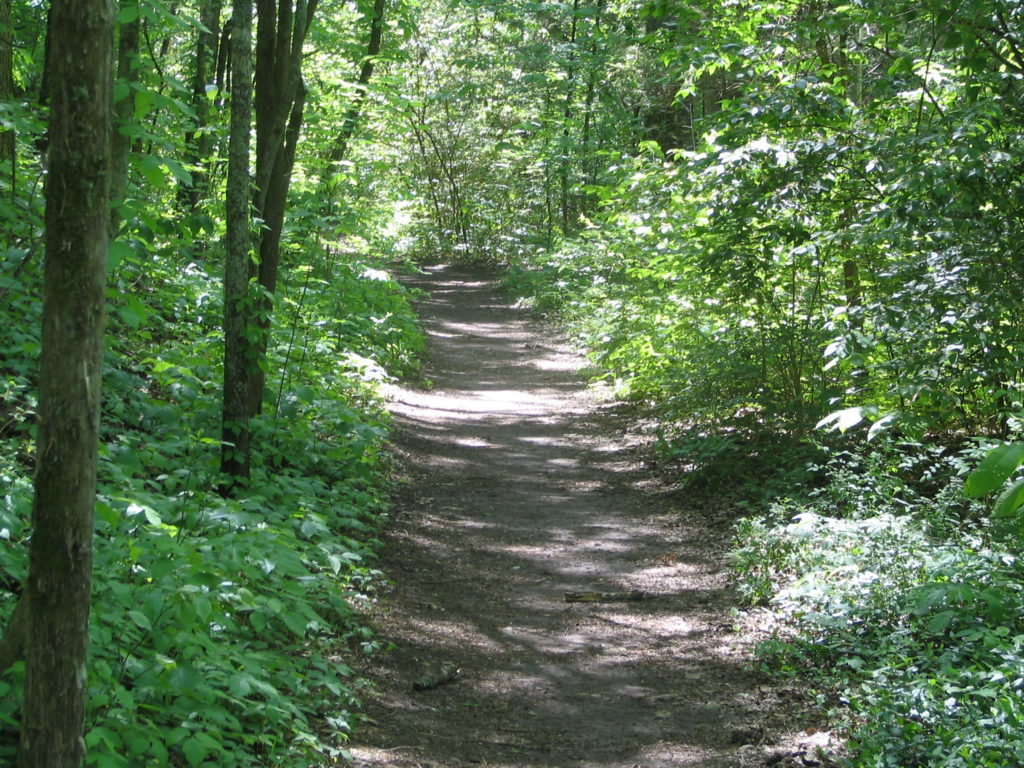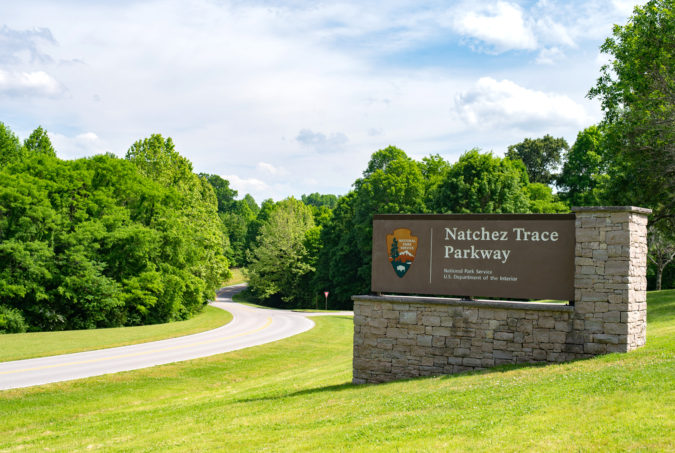On a road trip back from New Orleans a couple of years ago I decided to drive along the Natchez Trace Parkway for a ways. The Parkway follows the original Natchez Trace, or trail, used by settlers, travelers, preachers, traders, and outlaws beginning in the 1700s and continuing up through the Civil War and beyond. It runs roughly five hundred miles from Natchez, Mississippi to present-day Nashville, Tennessee.
In the day, travelers would float their wares down the mighty Mississippi River from Kentucky, Ohio, and the Eastern midwest, to New Orleans, then make the long trudge back by foot or horseback along the Trace. It was a dangerous road, roamed by highwaymen, bandits, and bad men of all sorts. An area rich in the history of early America.
On one such journey up from New Orleans in 1809, Meriweather Lewis, of Lewis and Clark fame, stopped for the night at Grinder’s Stand, a rough-hewn lodging house near Hohenwald, Tennessee. Before the night was over, in an apparent fit of drunkenness and depression, he shot himself in the abdomen. He did not die quickly or quietly, and it took a self-administered second shot to the head in the wee dawn hours to finally end it. He was 35 years old, and one of the brave, brilliant, and promising figures of his generation.
Natchez is a beautiful old city about 170 miles above New Orleans, built right on the river. In its day, cotton was king here, and the city was the richest per capita in the United States. Old ornate antebellum mansions still stand, built mostly with slave labor. The slaves were brought here against their will to farm the massive cotton plantations that fueled the economy. It’s a grim legacy to this place and period of America’s past.
I never met a historical marker I didn’t like, and there are plenty along the Trace.
At Emerald Mound, an eight-acre mound was built by the Mississippians, early Native Americans who first settled here in 500 AD. It is the second-largest in the country and housed temples, celebratory structures, and burials. These ancestors of the later Natchez thrived here from 1300-1600, when the Spanish came, looking for gold.

An early settler, Noble Osburn, operated a tavern and store at Osburn Stand in the Choctaw Nation. He was known for his even temper, his generosity to strangers, and his fair and equal treatment of both his Choctaw neighbors and travelers on the Trace. At Osburn Stand a person could obtain GROCERIES, ground coffee, sugar, biscuit, cheese, and dried beef and bacon on very reasonable terms. Also, have his horse shod on short notice.
I know I do not take those amenities lightly, and surely neither did travelers of the day. Here’s to Noble Osburn, a great American.
At Washington, Mississippi’s first capital city, Elizabeth Female Academy was founded. The school was the first of its kind in the territory and was dedicated to the education of young women in the rough and sometimes primitive early days of the state.
Along Hurricane Creek, a sign reminds us, Plants need water as much as men need money. Some are satisfied with little, some cannot flourish unless they have a lot. The majority can live contentedly with medium amounts.
I sit for a few minutes on the banks of the meandering creek, and remind myself to live contentedly with what I’ve been blessed with, such as it is. A certain amount of contentment seems to naturally follow those days when I remember to appreciate what I have.
Near Meridian I turn off the Trace, which by the 1840’s had outlived its usefulness with the invention and widespread adoption of the steamboat. The boats could power their way back up the river from New Orleans all the way to Pittsburgh. Where once men had to make the long return walking, now they could pay the fare and ride. Progress duly noted.
Georgia is playing Alabama in the SEC Championship so I stop early to get a room where I can put my feet up and watch the game. I avoid chains when I can, in food and lodging, and I find a small hotel at a nondescript exit along I-20.
When I enter the lobby, the pleasant and exotic smell of Indian food wafts from the back. A regal woman in a richly colored sarong checks me in. I offer her my AAA card and driver’s license and she takes a cursory look.
She waves her hand in the air.“I have been doing this for thirty years,” she says. “I can tell a person’s character as soon as they walk through that door.”
She sees I am from Atlanta and tells me she was just there visiting her son, a neurosurgeon at Emory.
“This is a wonderful country,” she says. “A person can work hard and become whatever they want.”
And continues, “I came here with thirty dollars, spoke no English. Now I have twenty million dollars in property.”
She points up the street, toward the highway. “I own that Holiday Inn. And both of those gas stations.”
She stops in thought for a moment, seems to want to say one more thing. “I am a Hindu. But also an American.”
She gives me a room on the ground floor, spotlessly clean and tastefully decorated. I lie down on the large king bed and turn on the TV. The AC hums, and football pregame fills the room.
We’ve got a good thing going here, America. Are we feeling grateful today?



Much enjoyed Jim!
💥😉👍🏼
What a great way to take in our existence. You have such a gift, my friend.
Thanks for your blog, nice to read. Do not stop.